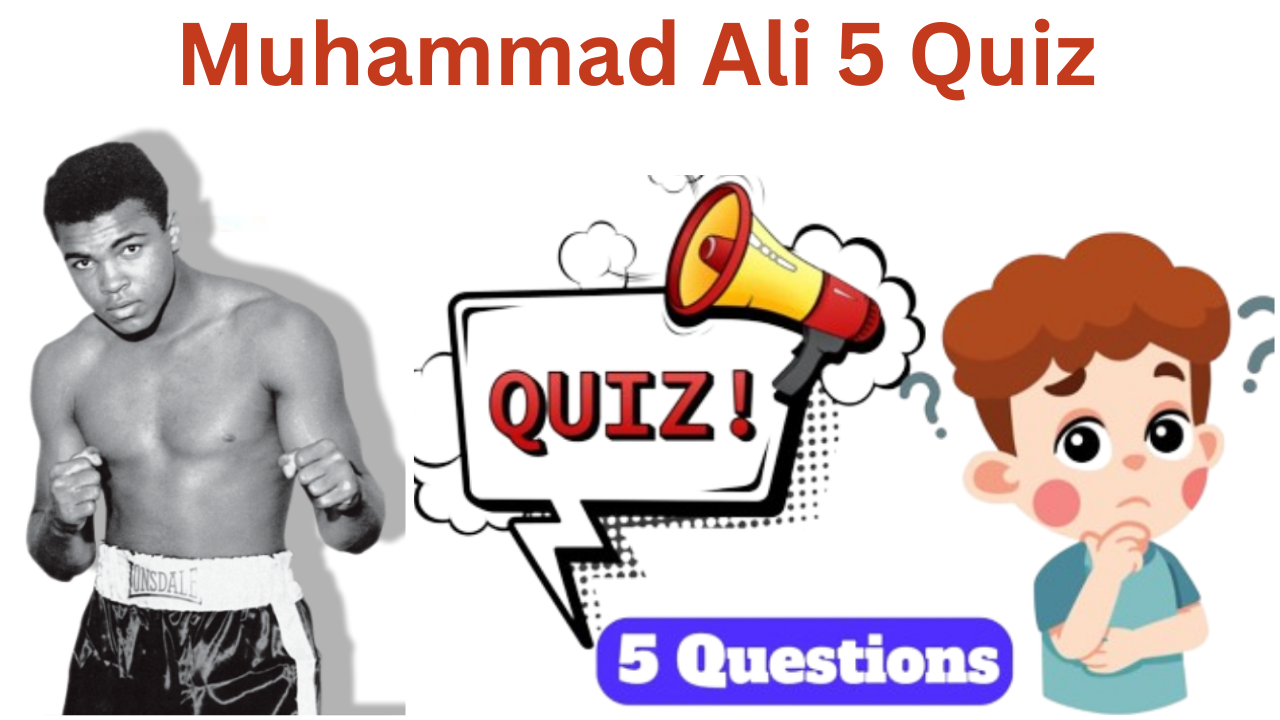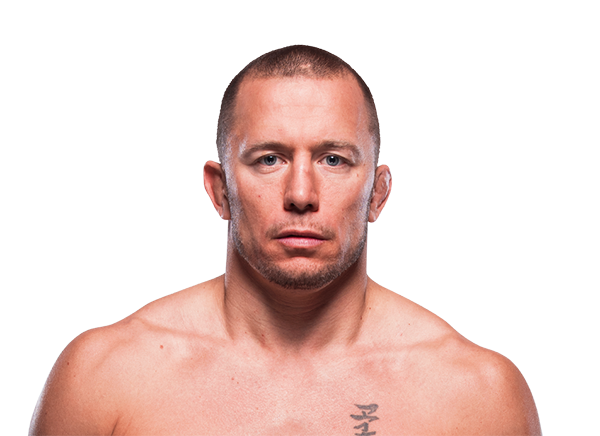Muhammad Ali 5 Questions Quiz

Muhammad Ali 5 Questions Quiz. Hey Football Lovers Welcome To FballQuiz Where You Gain Knowledge Related To Football Players As Well As Knowledge Related To Other Sports Athletes Around The World. Today We Are Here With 5 Questions Related To The Greatest Foxer Muhammad Ali Also Known As The Greatest. He Was Born In 1942. He Won His First Heavy Weight Championship in 1962. He Also Won the Olympic Gold Medal In 1960. He Won 56 Fights Out Of 61 Fights In His Carrer. He Died In 2016.
Test your knowledge with this quiz about Muhammad Ali. Click on the right answers. It’s fun and will help you learn Something New. Thanks!
Results
Oh You Failed But No worries! You can always revisit and finish the quiz later. Positive and informative

#1. What was Muhammad Ali’s birth name?

#2. In which year did Muhammad Ali win his first World Heavyweight Championship?

#3. What is Muhammad Ali famously known for saying before a fight?

#4. Against whom did Muhammad Ali fight in the “Rumble in the Jungle”?

#5. What year did Muhammad Ali retire from boxing?
About Muhammad Ali

Muhammad Ali, born Cassius Marcellus Clay Jr. on January 17, 1942, in Louisville, Kentucky, is one of the most iconic figures in sports history. Renowned not just for his extraordinary boxing skills but also for his larger-than-life personality, Ali captivated the world with his charisma, wit, and unyielding determination. From a young age, Ali showed signs of greatness, winning a gold medal in the light heavyweight division at the 1960 Rome Olympics. His early success set the stage for a professional career that would see him rise to become the heavyweight champion of the world and a global cultural icon.
Ali’s rise to fame was meteoric. In 1964, at just 22 years old, he stunned the world by defeating Sonny Liston to win the World Heavyweight Championship. It was during this period that he announced his conversion to Islam and changed his name from Cassius Clay to Muhammad Ali, a move that symbolized his rejection of his “slave name” and his embrace of his new identity. This decision was met with both admiration and criticism, marking the beginning of Ali’s journey as a polarizing yet beloved figure.
Ali’s boxing style was revolutionary. Known for his incredible speed and agility, especially for a heavyweight, he coined the famous phrase, “float like a butterfly, sting like a bee,” which perfectly encapsulated his approach in the ring. His ability to evade punches with a combination of quick footwork and head movement was unparalleled. Ali’s fights became legendary, with bouts like the “Rumble in the Jungle” against George Foreman in 1974 and the “Thrilla in Manila” against Joe Frazier in 1975 cementing his legacy as one of the greatest boxers of all time.
Beyond his athletic prowess, Ali was also a symbol of resistance and social change. His refusal to be drafted into the U.S. military during the Vietnam War on the grounds of his religious beliefs and opposition to the war was a defining moment in his life. Ali famously declared, “I ain’t got no quarrel with them Viet Cong… No Viet Cong ever called me [racial slur].” This stance led to his arrest, the stripping of his boxing titles, and a three-and-a-half-year ban from the sport during the prime of his career. Despite the personal and professional cost, Ali remained steadfast in his beliefs, emerging from the ordeal as a symbol of courage and conviction.
After his return to boxing in 1970, Ali continued to build on his legacy, regaining the heavyweight title twice more in his career. His matches were not just sporting events but global spectacles that transcended the sport, drawing in millions of viewers and making headlines around the world. Ali’s ability to captivate audiences, whether through his pre-fight banter, his in-ring performances, or his post-fight interviews, made him a unique figure in the world of sports.
As his career wound down, Ali faced challenges outside the ring as well. In 1984, he was diagnosed with Parkinson’s disease, a degenerative neurological condition likely exacerbated by the repeated blows to the head he sustained during his boxing career. Despite this, Ali remained active in public life, using his platform to advocate for peace, humanitarian causes, and the rights of oppressed peoples around the world. His battles with Parkinson’s only deepened the world’s admiration for him, as he faced the disease with the same bravery and determination that had characterized his boxing career.
Muhammad Ali’s legacy extends far beyond the world of sports. He was a global ambassador for peace and goodwill, and his work as a humanitarian earned him numerous accolades, including the Presidential Medal of Freedom in 2005. Ali’s life story is a testament to the power of conviction, the importance of standing up for one’s beliefs, and the impact one person can have on the world. His death on June 3, 2016, was met with an outpouring of grief and respect from around the globe, with people from all walks of life paying tribute to a man who had touched so many lives.
In conclusion, Muhammad Ali was more than just a boxer; he was a cultural icon, a social activist, and a global symbol of resilience and courage. His influence can still be felt today, not only in the world of sports but in the broader context of social justice and human rights. Ali’s life was one of triumphs and trials, of standing up in the face of adversity, and of using one’s platform to make a difference in the world. His legacy is one of greatness, both in the ring and beyond, and he will forever be remembered as “The Greatest.”







